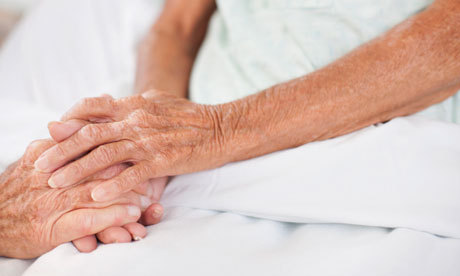Your Chances of Dying by 2023? Test Offers a Clue

Want to know your chances of dying in the next 10 years? Here are some bad signs: getting winded walking several blocks, smoking, and having trouble pushing a chair across the room.
That's according to a "mortality index" developed by San Francisco researchers for people older than 50.
The test scores may satisfy people's morbid curiosity, but the researchers say their 12-item index is mostly for use by doctors. It can help them decide whether costly health screenings or medical procedures are worth the risk for patients unlikely to live 10 more years.
It's best to take the test with a doctor, who can discuss what the score means in the context of patients' own medical history, the study authors say.
The index "wasn't meant as guidance about how to alter your lifestyle," said lead author Dr. Marisa Cruz of the University of California, San Francisco.
Instead, doctors can use the results to help patients understand the pros and cons of such things as rigorous diabetes treatment, colon cancer screening and tests for cervical cancer. Those may not be safe or appropriate for very sick, old people likely to die before cancer ever develops.
The 12 items on the index are assigned points; fewer total points means better odds.
— Men automatically get 2 points. In addition to that, men and women ages 60 to 64 get 1 point; ages 70 to 74 get 3 points; and 85 or over get 7 points.
— Two points each: a current or previous cancer diagnosis, excluding minor skin cancers; lung disease limiting activity or requiring oxygen; heart failure; smoking; difficulty bathing; difficulty managing money because of health or memory problem; difficulty walking several blocks.
— One point each: diabetes or high blood sugar; difficulty pushing large objects, such as a heavy chair; being thin or normal weight.
The highest, or worst, score is a 26, with a 95 percent chance of dying within 10 years. To get that, you'd have to be a man at least 85 years old with all the above conditions.
For a score of zero, which means a 3 percent chance of dying within 10 years, you'd have to be a woman younger than 60 without any of those infirmities — but at least slightly overweight.
It's hardly surprising that a sick, older person would have a much higher chance of dying than someone younger and more vigorous, and it's well known that women generally live longer than men. But why would being overweight be less risky than being of normal weight or slim?
One possible reason is that thinness in older age could be a sign of illness, Cruz said.
Other factors could also play a role, so the index should be seen as providing clues but not the gospel truth, the research suggests.
The findings were published Tuesday in the Journal of the American Medical Association. Grants from the National Institute on Aging and the American Federation for Aging Research helped pay for the study.
The researchers created the index by analyzing data on almost 20,000 Americans over 50 who took part in a national health survey in 1998. They tracked the participants for 10 years. Nearly 6,000 participants died during that time.
They previously used the test to predict the risk of dying within four years. They said their new effort shows the same index can be used to predict 10-year mortality.
Dr. Stephan Fihn, a University of Washington professor of medicine and health quality measurement specialist with Veterans Affairs health services in Seattle, said the index seems valid and "methodologically sound."
But he said it probably would be most accurate for the oldest patients, who don't need a scientific crystal ball to figure out their days are numbered.



